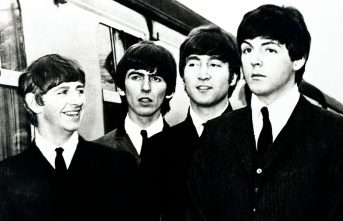hundreds of thousands of children all over the world have devoured his books. The wonderful adventures of its hero miniature Tobie Lolness to the saga Vango or the Book-of-Pearl, Timothée de Fombelle has signed some of the works most beautiful and richest that have appeared in the last fifteen years to the ray youth, of those whose the poetry and the strength to live for a long time their readers.
His latest book, Alma, the first volume of an ambitious saga over three volumes, tells of the fate of a young African woman in the time of slavery and evokes the fight of abolition. To be a great success. But, contrary to all his previous works, it will not be published in England or in the United States. In fact, Timothée de Fombelle is a wonderful writer, but he is white, which, in our times to have gone mad, banned him visibly to broach the subject of slavery.
The Point : For the first time, so that your work is translated in the world, your last book does not come, probably not in the United States or in England...
Timothée de Fombelle : At Walker Books, my English publisher, which has a subsidiary in the United States, it is known that I have been working for years on the subject of the slave trade, and I was right from the start warned. Fascinating subject, but too delicate, I was told : when it is white, on the side of those who have exploited the Blacks, you can't decently take ownership of the history of slavery. They liked the book, but, in fact, and for the first time, they will probably not...
I had to be worthy of my subject.
Knowing the trial likely in cultural appropriation, to which you are exposed, at least in the anglo-saxon countries, haven't you been tempted to give up ?
I had knowledge of these debates, but I tried not to be too attentive to not censoring myself. The good side all the same, these trials legitimacy is that one is forced to be vigilant. I am a white man of the Twentieth, I am not a historian, so to tell a little black girl of the Nineteenth, I am really documented, I have consulted the archives, logbooks, I've read a lot about ancient Africa and I have traveled. I do this for all of my books, but for Alma, it represents years of work. I had to be worthy of my subject. To share few great novels of american, few works of fiction evoke slavery, and they always tell the slave trade from the point of view of those who organised it, " the upper deck ", they start more often in Europe. I was keen for my part to this that the story starts in Africa, on the side of the triangle that we never invoke...
Why did you become interested in this subject ?
I lived in Abidjan as a family, my parents, and we have a day taken discover by car in the string of forts along the west coast of Africa. A journey of fifteen days, which was very important to me. These fortresses were the junction point between the caravans coming from the interior and the organizers whites that examined the "goods" before the board. I was thirteen years old, and these fortresses deserted, and at the time completely abandoned by the collective memory, has given me the consciousness almost physical of all the lives that had passed through there. I had the feeling that these people were gone the day before, it was very real, very concrete, and the number of forts is such a along the coast you realize how much trafficking was organized in a way that almost industrial... This was a real shock. However, in the college of franco-ivorian, where I was a student, there was no talk at all of slavery. Even today, it is a subject very quickly shipped into the school curriculum.
also Read Marie-Aude Murail : "The censorship has changed to camp"
This refusal of the Anglo-Saxons to publish your book, do you understand ?
I am a storyteller, white. This bias exists and I know where I come from. But that a white man can take the role of a little black girl, a writer to tell the story of the slave trade from the point of view of the slaves, even if this history is obviously not his own, for me that is the very definition of literature... The most absurd, it is all the same as nothing or next to nothing has never been written on slavery in children's literature, as with Alma, young readers will finally have access to three volumes of 400 pages of very documented, on this subject they have little knowledge of. And it would be better to deprive children of this knowledge, rather than admit that a white is the author of such a book ? This is what this refusal of publication means : it is better that children do not have access to this book, so much the worse if they continue to ignore the reality of slavery. This is the message that I'm trying to convey, albeit modestly, to Walker Books. I can't believe that we prefer that a book does not exist...
Alma – The wind rises, Gallimard, Timothée de Fombelle, illustrations by François Place, 388 pages











